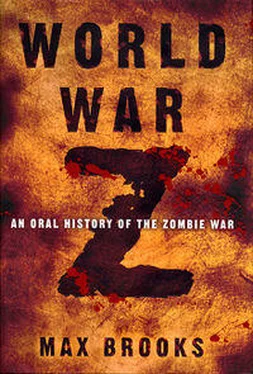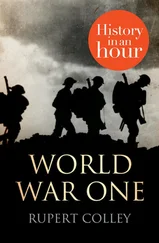[He shows me some of his sketches.] A masterpiece, isn’t it, second largest in the British Isles.
What’s the first?
[He hesitates.]
Windsor was your castle.
Well, not mine personally.
I mean, you were there.
[Another pause.]
It was, from a defensive standpoint, as close as one could come to perfection. Before the war, it was the largest inhabited castle in Europe, almost thirteen acres. It had its own well for water, and enough storage space to house a decade’s worth of rations. The fire of 1992 led to a state-of-the-art suppression system, and the subsequent terrorist threats upgraded security measures to rival any in the UK. Not even the general public knew what their tax dollars were paying for: bulletproof glass, reinforced walls, retractable bars, and steel shutters hidden so cleverly in windowsills and door frames.
But of all our achievements at Windsor, nothing can rival the siphoning of crude oil and natural gas from the deposit several kilometers beneath the castle’s foundation. It had been discovered in the 1990s but never exploited for a variety of political and environmental reasons. You can believe we exploited it, though. Our contingent of royal engineers rigged a scaffolding up and over our wall, and extended it to the drilling site. It was quite an achievement, and you can see how it became the precursor to our fortified motorways. On a personal level, I was just grateful for the warm rooms, hot food, and, in a pinch… the Molotovs and flaming ditch. It’s not the most efficient way to stop a Zed Head, I know, but as long as you’ve got them stuck and can keep them in the fire … and besides, what else could we do when the bullets ran out and we were left with nothing else but an odd lot of medieval hand weapons?
There were quite a bit of those about, in museums, personal collections … and not a decorative dud among them. These were real, tough and tested.
They became part of British life again, ordinary citizens traipsing about with a mace or halberd or double-bladed battle-axe. I myself became rather adept with this claymore, although you wouldn’t think of it to look at me.
[He gestures, slightly embarrassed, to the weapon almost as long as himself.]
It’s not really ideal, takes a lot of skill, but eventually you learn what you can do, what you never thought you were capable of, what others around you are capable of.
[David hesitates before speaking. He is clearly uncomfortable. I hold out my hand.]
Thank you so much for taking the time…
There’s … more.
If you’re not comfortable. . .
No, please, it’s quite all right.
[Takes a breath.] She … she wouldn’t leave, you see. She insisted, over the objections of Parliament, to remain at Windsor, as she put it, “for the duration.” I thought maybe it was misguided nobility, or maybe fear-based paralysis. I tried to make her see reason, begged her almost on my knees. Hadn’t she done enough with the Balmoral Decree, turning all her estates into protected zones for any who could reach and defend them? Why not join her family in Ireland or the Isle of Man, or, at least, if she was insisting on remaining in Britain, supreme command HQ north above the Antonine.
What did she say?
“The highest of distinctions is service to others.” [He clears his throat, his upper Up quivers for a second.] Her father had said that; it was the reason he had refused to run to Canada during the Second World War, the reason her mother had spent the blitz visiting civilians huddled in the tube stations beneath London, the same reason, to this day, we remain a United Kingdom. Their task, their mandate, is to personify all that is great in our national spirit. They must forever be an example to the rest of us, the strongest, and bravest, and absolute best of us. In a sense, it is they who are ruled by us, instead of the other way around, and they must sacrifice everything, everything, to shoulder the weight of this godlike burden. Otherwise what’s the flipping point? Just scrap the whole damn tradition, roll out the bloody guillotine, and be done with it altogether. They were viewed very much like castles, I suppose: as crumbling, obsolete relics, with no real modern function other than as tourist attractions. But when the skies darkened and the nation called, both reawoke to the meaning of their existence. One shielded our bodies, the other, our souls.
Ulithi Atoll, Federated States of Micronesia
[During World War II, this vast coral atoll served as the main forward base lor the United States Pacific Fleet. During World War Z, it sheltered not only American naval vessels, but hundreds of civilian ships as well. One of those ships was the UNS Ural, the first broadcast hub of Radio Free Earth. Now a museum to the achievements of the project, she is the focus of the British documentary World at War. One of the subjects interviewed for this documentary is Barati Palshigar.]
Ignorance was the enemy. Lies and superstition, misinformation, disinformation. Sometimes, no information at all. Ignorance killed billions of people. Ignorance caused the Zombie War. Imagine if we had known then what we know now. Imagine if the undead virus had been as understood as, say, tuberculosis was. Imagine if the world’s citizens, or at least those charged with protecting those citizens, had known exactly what they were facing. Ignorance was the real enemy, and cold, hard facts were the weapons.
When I first joined Radio Free Earth, it was still called the International Program for Health and Safety Information. The title “Radio Free Earth” came from the individuals and communities who monitored our broadcasts.
It was the first real international venture, barely a few months after the South African Plan, and years before the conference at Honolulu. Just like the rest of the world based their survival strategies on Redeker, our genesis was routed in Radio Ubunye.
What was Radio Ubunye?
South Africa’s broadcasts to its isolated citizens. Because they didn’t have the resources for material aid, the only assistance the government could render was information. They were the first, at least, to my knowledge, to begin these regular, multilingual broadcasts. Not only did they offer practical survival skills, they went so far as to collect and address each and every falsehood circulating among their citizens. What we did was take the template of Radio Ubunye and adapt it for the global community.
I came aboard, literally, at the very beginning, as the Urals reactors were just being put back online. The Ural was a former vessel of the Soviet, then the Russian, Federal Navy. Back then the SSV-33 had been many things: a command and control ship, a missile tracking platform, an electronic surveillance vessel. Unfortunately, she was also a white elephant, because her systems, they tell me, were too complicated even for her own crew. She had spent the majority of her career tied to a pier at the Vladivostok naval base, providing additional electrical power for the facility. I am not an engineer, so I don’t how they managed to replace her spent fuel rods or convert her massive communication facilities to interface with the global satellite network. I specialize in languages, specifically those of the Indian Subcontinent. Myself and Mister Verma, just the two of us to cover a billion people… well… at that point it was still a billion.
Mister Verma had found me in the refugee camp in Sri Lanka. He was a Translator, I was an interpreter. We had worked together several years before at our country’s embassy in London. We thought it had been hard work then; we had no idea. It was a maddening grind, eighteen, sometimes twenty hours a day. I don’t know when we slept. There was so much raw data, so many dispatches arriving every minute. Much of it had to do with basic survival: how to purify water, create an indoor greenhouse, culture and process mold spore for penicillin. This mind-numbing copy would often be punctuated with facts and terms that I had never heard of before. I’d never heard the term “quisling” or “feral”; I didn’t know what a “Lobo” was or the false miracle cure of Phalanx. All I knew was that suddenly there was a uniformed man shoving a collection of words before my eyes and telling me “We need this in Marathi, and ready to record in fifteen minutes.”
Читать дальше












